
Minister of Foreign Affairs of Ukraine Dmytro Kuleba and Deputy Head of the Cabinet of Ministers, Minister of Foreign Affairs of Turkmenistan Rashid Meredov held a video conference and discussed prospects for cooperation in the field of IT, the development of transport links and the future visit of the Ukrainian minister to Ashgabat, the Ministry of Foreign Affairs of Ukraine has reported.
“Relations between our countries have always developed in a friendly and constructive manner. I want the pace and tone of the dialog to be maintained and developed. Turkmenistan occupies a special place on our world map. We are ready to move forward politically and economically,” the press service of the ministry said, citing Kuleba as saying.
Meredov invited the Ukrainian minister to visit Ashgabat. The head of the Ukrainian Foreign Ministry proposed to hold a meeting of Ukrainian and Turkmen companies as part of the visit.
The minister of foreign affairs of Turkmenistan commended the extra sophisticated high-tech infrastructure projects that Ukrainian companies have successfully implemented in Turkmenistan. The interlocutors noted the need to develop this interaction, as well as look for new areas of mutually beneficial cooperation, in particular in the field of IT.
Also, the foreign ministers discussed further cooperation and mutual support of initiatives within the framework of international organizations. Kuleba congratulated Turkmenistan on acquiring observer status in the WTO.
The ministers agreed to hold a meeting of the Joint Intergovernmental Ukrainian-Turkmen Commission on Economic, Cultural and Humanitarian Cooperation as soon as possible.
The parties also discussed the steps required to restore direct flights between Ukraine and Turkmenistan, as well as the interaction of maritime authorities. The importance of developing alternative transport corridors was noted.
The ministers stressed the need to further encourage Turkmen students to study in Ukraine, the development of medical tourism and health improvement in Ukraine, the need to intensify interaction in the field of culture.
During the video conference, Kuleba and Meredov signed the Cooperation Program between the Ministry of Foreign Affairs of Ukraine and the Ministry of Foreign Affairs of Turkmenistan for 2020-2021.
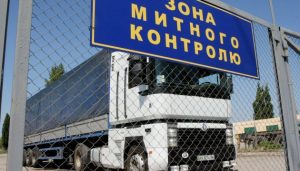
The State Customs Service will issue EUR-MED certificates from September 21, Deputy Minister of Development of Economy, Trade and Agriculture, Trade Representative of Ukraine Taras Kachka has said.
“As early as Monday, the customs service will issue EUR1 and EUR-MED certificates of origin for all EU member states (Norway, Iceland, Switzerland and Liechtenstein) in a form of the application of diagonal cumulation of origin,” he wrote on Facebook on Friday.
“That is, the free trade regime applies to goods that may include all components of the goods from Ukraine, Austria, Belgium, Bulgaria, Greece, Denmark, Estonia, Ireland, Spain, Italy, Cyprus, Latvia, Lithuania, Luxembourg, Malta, the Netherlands, Germany, Poland, Portugal, Romania, Slovakia, Slovenia, Hungary, Finland, France, Croatia, Czech Republic, Sweden, Great Britain (at least for the duration of the transitional agreement with the EU), Norway, Iceland, Switzerland and Liechtenstein,” the trade representative said.
This became possible before a formal decision was made between Ukraine and the EFTA due to the general agreement of the parties on the possibility of applying Article 30 of the pan-Euro-Mediterranean cumulation and the PEM Convention, Kachka said.

The RDS Ukrainian road-building group of companies has completed the repair of 37 km of the section of the N-01 road in Cherkasy region ahead of schedule, the group’s co-founder, Yuriy Shumakher, has told Interfax-Ukraine.
“According to our commitments, we were supposed to complete the work in November, but we completed the renovation at the end of summer and in September we expect the section to be launched,” he said.
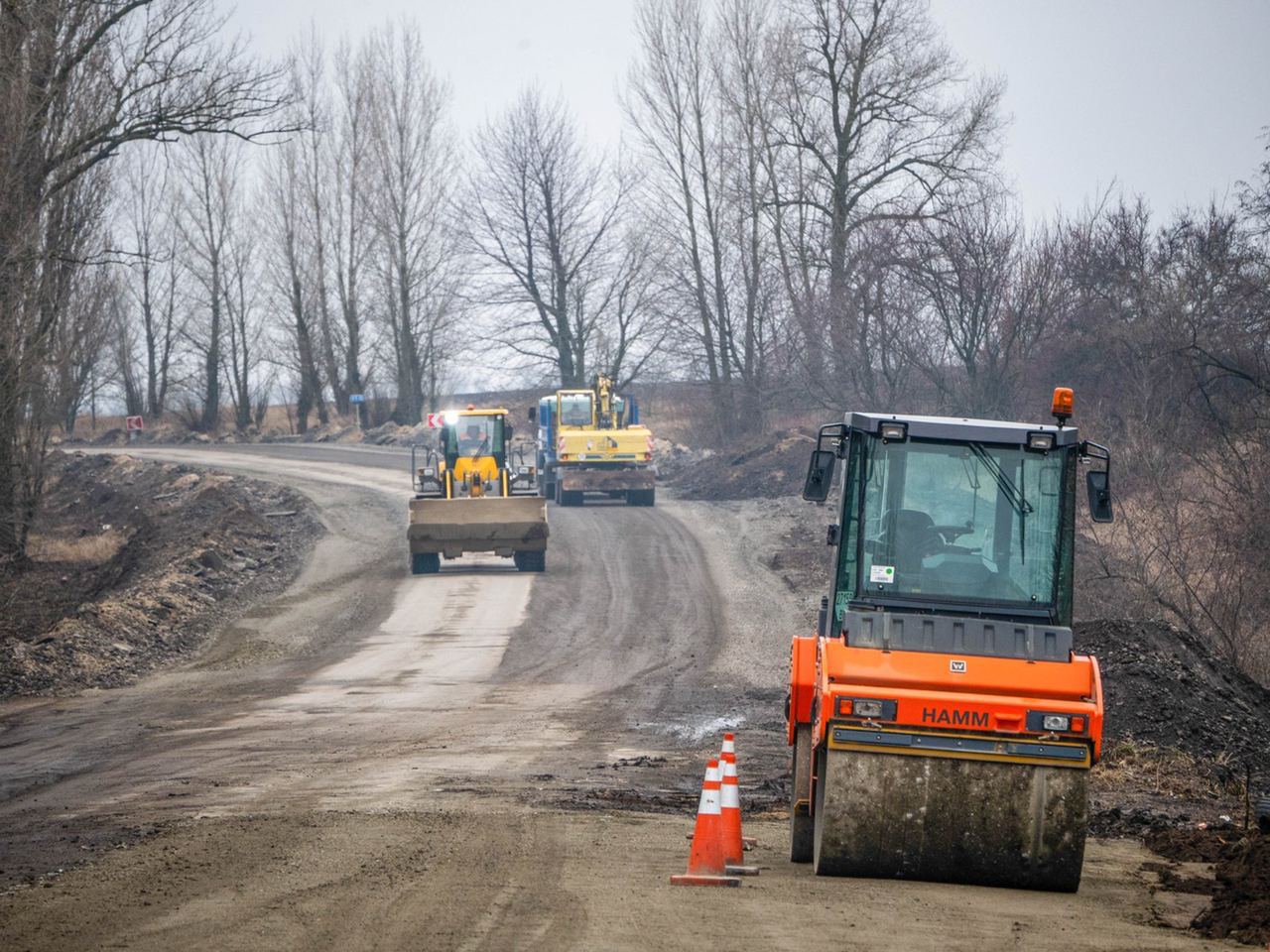
Shumakher recalled that, under the Big Construction program, from the beginning of 2020, the second category H-01 highway, which connects Kyiv with Znamyanka, is being repaired, and the company has repaired three sections with a total length of 37 km from Horodysche to Smila.

According to the information in the ProZorro system, at the beginning of July, four more tenders were announced for current medium repairs in total 35 km of this road in Cherkasy region, and all of them were won in August by Rostdorstroy LLC from the RDS Group, offering about UAH 713.9 million in total. The corresponding agreements were signed in early September.
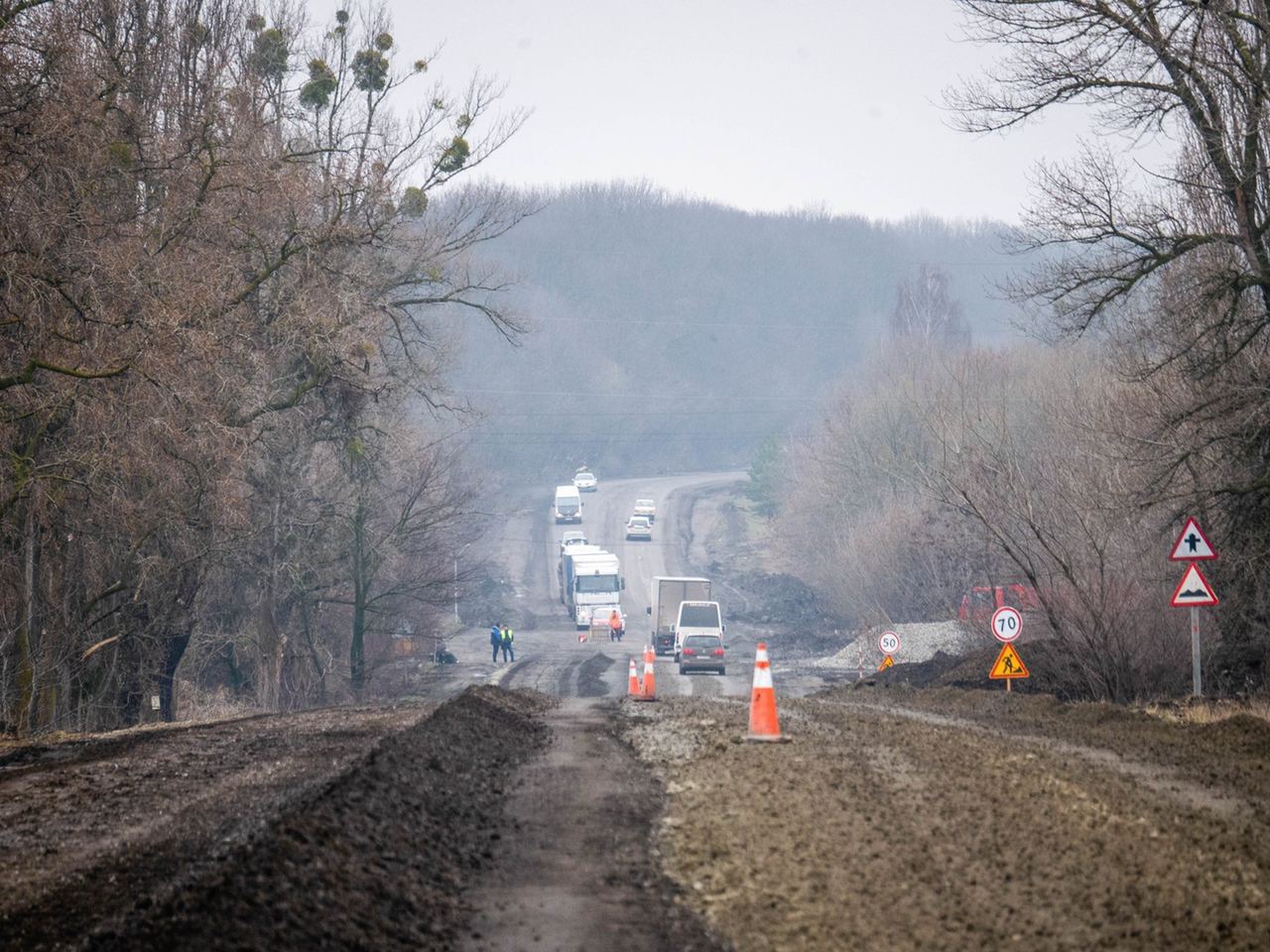
Its competitors were Joint Ukrainian-German Venture Autostrada LLC and ShRBU-48 LLC.
Shumakher said that the overhaul of the N-01 highway had not been carried out since the 1970s, as a result of long-term operation of the road and heavy traffic of heavy trucks the road surface was badly worn out.

RDS won three tenders for the restoration of the specified 37th section of this road last year offering the price of UAH 658.24 million in total.

In addition, the group has already started repairing two more sections of the H-01 road, the total length of this section is 19 km.
The total length of the H-01 highway is 289.3 km. The road passes through three regions: Kyiv, Cherkasy and Kirovohrad.

RDS Group is included in the top three road construction companies of Ukraine. It includes Kyivshliakhbud” and Rostdorstroy. The core business is construction, reconstruction and maintenance of roads and bridges, construction of airfield complexes.
The ultimate beneficial owners of RDS Group are Ukrainian citizens Yuriy Shumakher and Yevhen Konovalov.
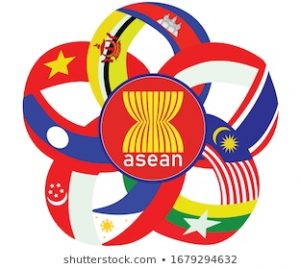
A trilateral meeting between the leadership of the Shevchenko Kyiv National University, the Ministry of Foreign Affairs and the ambassadors of the ASEAN (the Association of Southeast Asian Nations) member states in Ukraine was held at the university, where the parties decided to open the ASEAN Center in Ukraine on the basis of the Institute of International Relations of the Shevchenko Kyiv National University by the end of 2020.
“For Ukraine, it is very important to develop partnership with ASEAN. These are new great opportunities, in particular in science and technology, trade, investment, and economic cooperation. The ASEAN Center will contribute as much as possible to the development of contacts between Ukraine and the member states of the Association,” the press service of the Ministry of Foreign Affairs of Ukraine said, citing Minister of Foreign Affairs of Ukraine Dmytro Kuleba on Friday.
It was the Ukrainian foreign minister who initiated the project.
The main task of the Center will be to intensify bilateral contacts between researchers and scientists, as well as further development of humanitarian, educational and interpersonal contacts, in particular, the participation of representatives of scientific and business circles of Ukraine and ASEAN in cultural and educational exchanges.
The involvement of the faculty of the Institute of International Relations in the creation and functioning of the ASEAN Center will also open up new opportunities for research activities in areas of mutual interest of Ukraine and the countries of the region.

Ukraine and Turkey decided to deepen partnership to create joint programs in the aerospace industry at a meeting between Deputy Prime Minister of Ukraine for Strategic Industries of Ukraine Oleh Urusky and an official delegation of the Republic of Turkey headed by President of the Turkish Space Agency Serdar Huseyin Yildirim, the press service of the Cabinet of Ministers of Ukraine reported on Friday.
“The Ukrainian and Turkish aerospace industries will deepen their cooperation in order to create joint programs in the aerospace industry,” the Cabinet of Ministers said in a statement on its website on Friday.
According to the report, the joint project will significantly deepen cooperation between Ukraine and Turkey in the aerospace industry, and is also the first step in the implementation of the agreements reached during the visit of the Ukrainian delegation to Turkey at the end of August.
The Turkish delegation has recently managed to get acquainted with the capabilities of the main enterprises of the State Space Agency of Ukraine and visited the Pivdenne (Yuzhnoye) Design Bureau and the Pivdenny (Yuzhny) Machine-Building Plant in Dnipro.
“During the meeting, which took place on September 16, the parties were able to discuss in detail the real ways of combining the efforts of Ukraine and Turkey in the development and serial production of space technology,” the government said.
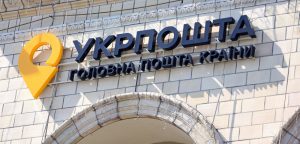
Ukrposhta expects to sign an agreement with the European Bank for Reconstruction and Development (EBRD) and the European Investment Bank (EIB) in October to raise a EUR 100 million loan for the construction of new sorting centers.
“I really hope that on October 1 we will sign the first EUR 100 million agreement in the history of Ukrposhta for the construction of a new logistics network with the EBRD and the EIB and, in fact, we will start building a new Ukrposhta,” its CEO Igor Smelyansky said on the air of KSE Business Transformation Week “Transformational Leaders. Public Sector.”
He also recalled that Ukrposhta built the last sorting center in 1980 and noted that it is very difficult to compete with the market players such as Nova Poshta using such outdated equipment.
At the same time, according to Smelyansky, despite the quarantine, the company continues to grow in the volume of services provided.
As reported, in the spring, Ukrposhta hoped to attract EUR 100 million for the construction of new sorting centers by summer. The company later clarified to the Interfax-Ukraine agency the funds raised are planned to be used for the design and construction of three or four terminals, as well as for the automation of about 30 depots.